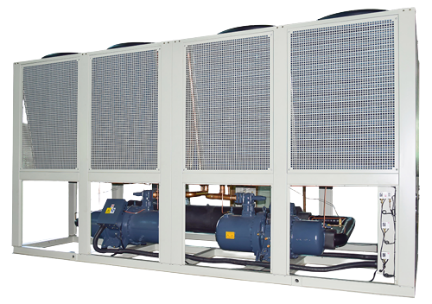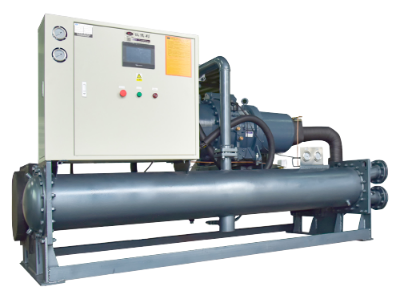We offer you 100% custom-made service Inquiry
As the world shifts towards cleaner energy sources, hydrogen fuel is becoming an increasingly popular alternative to traditional fossil fuels. Hydrogen fuel cell vehicles are already on the roads, and the infrastructure to support them is rapidly expanding. One key component of this infrastructure is the hydrogen refueling station, which uses industrial chillers to cool and compress hydrogen gas for storage and dispensing.
An industrial chiller is a piece of equipment that uses refrigeration technology to cool water or other fluids to a desired temperature. This chilled fluid can then be used to cool other equipment or processes. Industrial chillers come in a variety of sizes and configurations, depending on the specific application.
In a hydrogen station system, an industrial chiller is used to cool and compress hydrogen gas. When hydrogen is produced, it is typically at a high temperature and pressure. To store and dispense the hydrogen safely, it must be cooled and compressed to a lower temperature and higher pressure.
The process begins with the hydrogen gas being fed into the chiller. Inside the chiller, the gas is cooled by a heat exchanger that uses chilled water or another cooling fluid. As the gas is cooled, it condenses into a liquid, which is then compressed by a pump to increase its pressure.
The compressed liquid hydrogen is then stored in high-pressure tanks until it is needed for refueling. When a vehicle pulls up to the refueling station, the liquid hydrogen is dispensed into the vehicle's fuel tank, where it evaporates back into a gas and is used to power the vehicle's fuel cell.
Industrial chillers are a critical component of hydrogen station systems for several reasons. First, they are necessary to cool and compress the hydrogen gas for storage and dispensing. Without industrial chillers, it would be impossible to safely store and distribute hydrogen fuel.
Second, industrial chillers help to improve the efficiency of the hydrogen production process. By cooling the hydrogen gas before it is compressed, less energy is required to compress it to the desired pressure. This means that more of the energy from the original source (such as solar or wind power) can be used to produce hydrogen, rather than being lost as waste heat.
Finally, industrial chillers help to ensure the safety of hydrogen refueling stations. Hydrogen gas is highly flammable, and storing it at high pressures can be dangerous if not done correctly. By cooling and compressing the gas in a controlled manner, industrial chillers help to minimize the risk of accidents and ensure that refueling stations are safe for both customers and employees.
There are several types of industrial chillers that can be used in hydrogen station systems, depending on the specific requirements of the application. The most common types include.

Air-cooled chillers use ambient air to dissipate heat from the cooling fluid. They are typically less expensive and easier to maintain than water-cooled chillers, but they are less efficient and may not be suitable for applications where precise temperature control is required.

Water-cooled chillers use water to dissipate heat from the cooling fluid. They are generally more efficient than air-cooled chillers and can provide more precise temperature control, but they require a constant supply of water and may be more expensive to install and maintain.
Industrial chillers are a critical component of hydrogen station systems, enabling safe and efficient storage and dispensing of hydrogen fuel. By cooling and compressing the hydrogen gas, industrial chillers help to improve the efficiency of the production process while ensuring that refueling stations are safe for both customers and employees. With continued investment in clean energy infrastructure, industrial chillers will play an increasingly important role in supporting the transition to a more sustainable future.
By continuing to use the site you agree to our privacy policy Terms and Conditions.